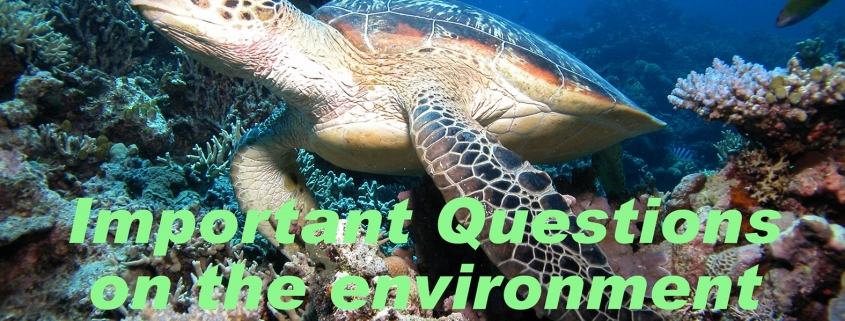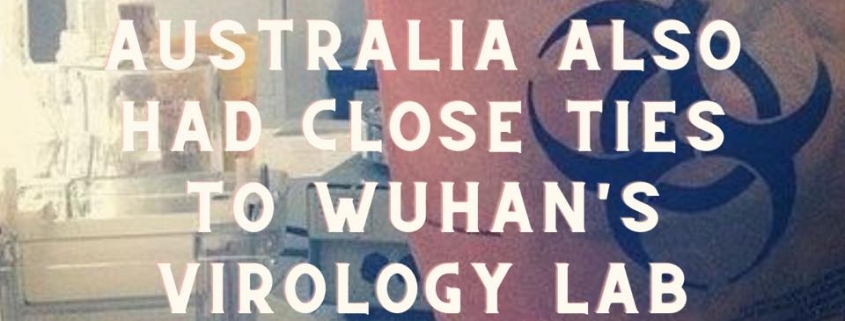Stephen Andrew, MP for Mirani, has prepared the following environment questions for estimates at the Queensland Parliament:
1. In regard to new regulations administered by the Minister’s department requiring cane farmers and other farmers to carry out agricultural ERAs, will the Minister advise: (a) when the regulation commenced; (b) the maximum penalties that apply to offences against the regulation; (c) when farmers and other landholders were advised by the department of their new obligations under the regulation and how they were informed; (d) the period farmers now have in which to enact nitrogen and phosphorous budgets to fully comply with the regulation; (e) the number of agricultural advisors in Queensland who are registered with the QRIDA and who can prepare nutrient management budgets with soil tests and crop growth requirements to enable farmers to meet their obligations under the regulation; and (f) what steps the department is taking to assist those farmers who are unable to access an advisor registered with the QRIDA to have the required nitrogen and phosphorous budgets prepared within the time available for them to comply?
2. Given the value of the Great Barrier Reef to the Queensland economy and claims made by organisations such as the GBRMPA about risks to the reef posed by farm pesticides, will the Minister advise what funding is provided in the budget for her Office of Science to undertake research to gauge the presence of pesticides in flora and fauna on the reef, and the adverse impacts of these pesticides?
The CSIRO is now “correcting the record” on Australia’s ties to Wuhan’s Institute of Virology. Stephen Andrew asks what else are we not being told?
“It is astonishing that until recently, nobody at the CSIRO or Government thought it worth mentioning that, like Canada and the US, Australia also had many close ties to the Wuhan Institute of Virology and its research into bat-coronaviruses. After first denying Australia had ever worked on bats with Wuhan, CSIRO’s CEO, Judi Zielke was forced to admit in subsequent senate hearing testimony last month, that CSIRO and others, had in fact undertaken research on bat viruses with researchers from the Wuhan Institute of Virology”.
“Both Wuhan’s Director of the Centre for Emerging Infectious Diseases, Professor Shi, and Head of the Bat Virus Infection and Immunity, Professor Zhou, were CSIRO-trained scientists who have worked at some of Australia’s top Bio-labs. Australian scientists collaborated on at least 10 joint research projects with Wuhan, one of which involved live bats taken from Southern Queensland. Another looked into why bats remained asymptomatic to viruses and whether they could still transmit those viruses to mammals with “lethal consequences”. Researchers at the University of Queensland, also published a joint paper with the Wuhan Institute last year, called “Origin and cross-species transmission of bat coronaviruses in China”.
CSIRO links with Wuhan
“UQ’s Dr Hume Field was a co-author alongside the CSIRO trained Professor Shi, and the Head of EcoHealth Alliance, Peter Daszak. Dr Hume is also an EcoHealth Alliance science and policy adviser. EcoHealth Alliance is the US organisation closely tied to Wuhan, who after being given grant monies by Fauci’s NIH, funded “gain of function” research on bat coronaviruses at the Wuhan Institute.
“I find it alarming to hear that “Gain-of-function” research is permitted in Australia. It is highly dangerous research where scientists basically identify an animal virus, which they think ‘COULD’, ‘MAYBE’, ‘possibly one day might’, evolve into a threat to humans. They take this virus, magnify its virulence and then ‘train it’ into becoming capable of human transmission, using genetic manipulations. They then ‘study’ the now lethal virus, ostensibly to learn how to stop it when, and IF, it undergoes the same process naturally.
“I’m no expert, but surely the real danger here is not that some random ‘animal virus’ may one day pose a threat to humans, but that one of these genetically enhanced supervirus will make their way out of a lab and into the community. It really makes you wonder whether scientists, high IQs aside –actually have any ‘common sense’? Maybe someone should do a research paper on that and the potential danger it poses to humanity.”
Stephen Andrew statement on the public’s rejection of mandatory vaccination:
A Petition to Australia’s House of Representatives against Mandatory Vaccination, closed last night after receiving hundreds of thousands of signatures from ordinary people all over the country. The Petition, which closed at 11.59pm, achieved a staggering total of 309,831 signatures. An extraordinary result for a country whose people are not known for their petition-signing proclivities.
It is just one of many other such Petitions that are currently running, or have run, that are drawing unprecedented levels of popular support in Australian. All revolve around just two key issues – mandatory vaccination and the danger of a fully fledged Vaccine-passport system being rolled out by government.
Media ignores mandatory vaccination petition
None of these Petitions have received a mention in the Australian mainstream press or Television nightly news. The only reference I could find to this latest one, was in the UK’s Daily Mail, who only ran the story so they could smear it. The UK Daily Mail said the Petition was misinformation and that the numbers signing it was a “terrifying” sign of the times for Australia.
That a major mainstream outlet is so comfortable denigrating and smearing a genuine outpouring of public sentiment in this way, speaks volumes about the role the now plays, or doesn’t play, in democracies today. Whoever the Daily Mail thinks it represents, it clearly isn’t honest, hard-working people, or their families and communities – not anymore. At least they covered it I suppose. I am yet to see a single mention in the Australian press.
For any Australian Petition to draw such a tsunami of signatures – 50,000 of which came in only the last 10 hours– should be a massive story in my book. The fact that it succeeded despite having no publicity, no huge funding injections from outside interest groups, no teams of highly paid lobbyists or social influencers drumming up support behind the scenes, makes it one of the biggest genuinely popular responses to a petition in Australia’s history.
I am not sure what the federal government’s policy is on Petition numbers, but if a Petition signed by over 300,000 Australian citizens doesn’t force a debate on the floor of this country’s Parliament, then democracy really is dead.
Please sign our Queensland Petition to Restore Democracy:
Stephen Andrew on Stakeholder Capitalism:
“Stakeholder capitalism” is not a phrase I had ever heard of before 2020 but now seem to hear everywhere I go. The best way to understand what it means, is to think of a company as it was once understood, where the CEO and company managers are regarded as answerable to their “shareholders”, the actual owners of the company. They held a ‘fiduciary duty’, as managers, to always act in the best interests of their shareholders and if they failed to do so, the shareholders could boot them out and appoint someone who did.
Well, not anymore. That was the ‘old normal’. Under the ‘new normal’, the meaning of ‘fiduciary duty’ has undergone a radical shift. Now, a CEO or manager’s ‘fiduciary duty’ is to the company’s ‘stakeholders’, not its shareholders – and these stakeholders could be anyone from the local school, local community action group, or international environment lobby or regulator to your government.
Far from being a technical legal point, therefore, this shift in meaning changes everything. It is what has been driving the wholesale transfer of ‘power’ away from those who ‘own’ something, to those who can claim a ‘stake’ in it, and will end up changing the very nature of government in Australia.
Anyone who doubts this, need only read last month’s High Court decision, where the Commonwealth government was found ‘guilty’ for having ‘breached its fiduciary duty’ by approving a new coal mine in the country. The case was brought by a group of teenagers, who argued that as ‘stakeholders’ with a ‘vested interest’ in the state of the planet, the Commonwealth Government had a ‘fiduciary duty’ to act in their interests by not approving the mine. And they won! In the High Court!
The implications of this decision, and other similar ones we have seen in the courts recently, further shift ‘power’ away from ‘the people’ and into the hands of vested interest groups and those who really run government – the bureaucrat, the public official, the technician, the scientist, the systems analyst – the ‘managerial’ class known as “The Experts”.
Stakeholder capitalism is ‘technocracy’
That’s why the other name for “stakeholder capitalism” is ‘Technocracy’. A system of government that merges state and corporate power, all governed by a small cabal of elite technocratic experts, who know what’s best for society and everyone in it. It’s why we are seeing so many elites in politics and business, calling for more and more ‘public-private’ partnerships. They want a system where the only people they will be accountable or answerable to, will be each other.
In the old days, such partnerships were known by another name – back then, we called it ‘corruption at the top’. Either way, this new system will be the very antithesis of democracy.
Please help stop this by signing these very important two petitions and sharing as widely as you can. Here are the links:
Farm workers are desperately needed for Queensland farms, according to State Member for Mirani, Stephen Andrew. Thousands of jobs are available for unemployed Australians in regional Queensland and other parts of the country currently experiencing an acute labour shortage brought on by closed borders.
One Nation leader Senator Pauline Hanson joined local growers in Ayr this week where farmers were at a loss to what more they could do to encourage Australians to move to regional farming areas.
“Border closures have reduced the availability of overseas workers and this has opened enormous job opportunities for unemployed Australians,” Senator Hanson said. “In Queensland, it’s been estimated there will be a shortage this year of about 9000 workers in agricultural industries alone. Many farmers are concerned their produce will go to waste because there are not enough people to pick, pack and process it. Before the pandemic, a lot of seasonal agricultural jobs in Australia were usually taken by backpackers or workers brought to Australia under programs like the Pacific Labour Scheme. The industry has relied strongly on this imported labour despite there being hundreds of thousands of unemployed Australians perfectly capable of doing the work.”
Assistance for farm workers to relocate
Relocation costs are no longer a barrier to Australians seeking these jobs because state and Federal governments now have financial support in place to help unemployed people meet these expenses.
“The Queensland Government provides up to $1500 in assistance for eligible people relocating for agricultural work like picking fruit, and the Australian Government provides up to $6000 in assistance for eligible people relocating to a regional area for work. That’s a lot of support,” Senator Hanson said.
“There are advantages in living and working in regional areas, such as lower accommodation costs and house prices. They haven’t experienced pandemic lockdowns as often as our cities have. When people are concerned about housing affordability, how can beat buying a house in Ayr for less than $200,000 and be guaranteed work all year round?”
Senator Hanson said governments needed to examine more ways to get unemployed Australians into Australian jobs instead of importing labour.
“There’s been some uptake of these relocation incentives, but they’re not meeting all of the demand for seasonal agricultural workers,” she said. “It’s about time Channel Seven rethink next years filming of farmer wants a wife and consider a new program called “Farmer Wants a Worker”. Governments need to examine why these programs are not as effective as they could be, and start getting tough on lazy, long term unemployed Australians who think welfare can be treated as a lifestyle.
“Farmers are paying top dollar for workers, so they deserve to see productivity. If the carrot approach is not working, some form of stick approach should also be considered. It makes no sense to spend taxpayer dollars on importing overseas workers to meet a labour shortage while paying unemployment benefits to Australians capable of doing the work.”
The real health emergency in Queensland is not what the government is telling us, according to State Member for Mirani, Stephen Andrew.
“As the Premier jetsets off to the Japan Olympics, Queensland Health spirals to new lows. It is daily now that our office gets numerous calls about being left unattended or having to face rooms full of disgruntled patients at our hospitals. Qld HHS’s ran $82 million over budget last Year and the feedback we are getting tells us what is the real “Emergency” is here in this State and it’s getting worse by the Day.
“Our frontline workers do the best they can with what they are provided but rumours of lack of funding are becoming more common. Whilst on the subject of Health and emergency we would like to speak to people who have recovered from COVID here in Queensland. If you know someone who would like to share their battle with the virus, please let us know.
“Likewise, if you know of any people that have had reactions from being medicated against COVID, please let us know that too? I should clarify that I’m not a morbid person but I am a Member of the Parliamentary Health Committee, this information will assist in my understanding the matter as it affects us here in Queensland.”






